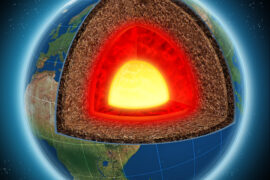
Baby Boomers are redefining what it means to be old. That point became particularly clear to California State University, Northridge health sciences professor Stephan (Kyusuk) Chung last year while he was taking part in a marathon.
Chung, who has completed 13 marathons and is looking forward to his 14th run, was keeping pace with a 75-year-old woman who told him she had participated in more than 100 marathons.

“We were side-by-side pretty much for the first 15 miles and then, all of a sudden, she left me in the dust and disappeared ahead of me,” Chung said. “That’s where the older generation is now. They aren’t letting getting older get in the way of all the things they still want to do, and they’re leaving the rest of us behind.”
Baby Boomers are defined as individuals born between 1946 and 1964 and represent a significant demographic in the United States — more than 20 percent of the country’s population.
“As they continue to age, many Baby Boomers are actively challenging and rejecting stereotypes about aging,” Chung said.
He pointed to the fact that many Baby Boomers are choosing to work well past traditional retirement age. According to a study by the U.S. Bureau of Labor Statistics, about 40 percent of people aged 55 and older were working or actively looking for work in 2020.
“This trend, often referred to as ‘unretirement,’ contradicts the stereotype that older individuals are not productive members of the workforce,” Chung said, noting that Baby Boomers are also returning to school in significant numbers to pursue degrees, certifications, or taking classes for personal enrichment. “They value lifelong learning and want to stay mentally sharp.”
Chung, who teaches in the College of Health and Human Development, said Baby Boomers also are more health-conscious than previous generations.
“They are exercising, eating healthier and focusing on wellness to maintain an active lifestyle,” he said.
According to the Centers for Disease Control and Prevention, more than 50 percent of Baby Boomers engage in regular physical exercise, with many participating in activities such as running, hiking and cycling. The Physical Activity Council reports that Baby Boomers make up about a third of the fitness industry’s clientele.
“These Boomers not only maintain their physical health, but also often surpass younger generations in their level of physical activity,” Chung said.
He said Baby Boomers are also dismantling the stereotype that older adults struggle with or avoid technology.
“They are adopting technology at an impressive rate,” Chung said, pointing to a 2021 Pew Research Center survey that found that 82 percent of U.S. Baby Boomers owned smartphones, 64 percent used social media and 70 percent of Baby Boomers are active internet users.
From travel to volunteering and political activism, Chung said Baby Boomers are using their post-retirement years to facilitate change, belying the stereotype that older adults are passive and disengage from society.
“Baby Boomers have been associated with significant social changes and activism throughout their lives,” he said. “Now, as they age, many continue to challenge societal norms and engage in activism, demonstrating that age is not a barrier to making a difference in the world.”
Chung said Baby Boomers are shifting societal perceptions and expectations of what it means to be “old.”
“Today’s older adults are often active, engaged, tech-savvy and eager to learn and experience new things,” he said. “They are a testament to the fact that aging does not necessarily mean slowing down or becoming less productive or relevant. Instead, they’re showing that it can be a period of activity, growth, and contribution.
“The popular saying ‘80 is the new 70 and 70 is the new 60’ encapsulates the idea that as life expectancies lengthen, and overall health and vitality improve into later years, age definitions are evolving,” Chung said. “Now, people in their 70s or 80s often exhibit the health, activity levels and quality of life formerly associated with those in their 60s or 70s. However, it’s crucial to recognize that this is a broad perspective, not applicable to every individual or community. Various factors like socio-economic status, healthcare access and lifestyle significantly influence an individual’s health and vitality as they age.
“In the case of Baby Boomers, many of them have the money and access to healthcare and lifestyle choices that allow them to redefine what it means to get older,” he said. “Hopefully, those of us who are following in their footsteps can learn from their example.”




Comments are closed.